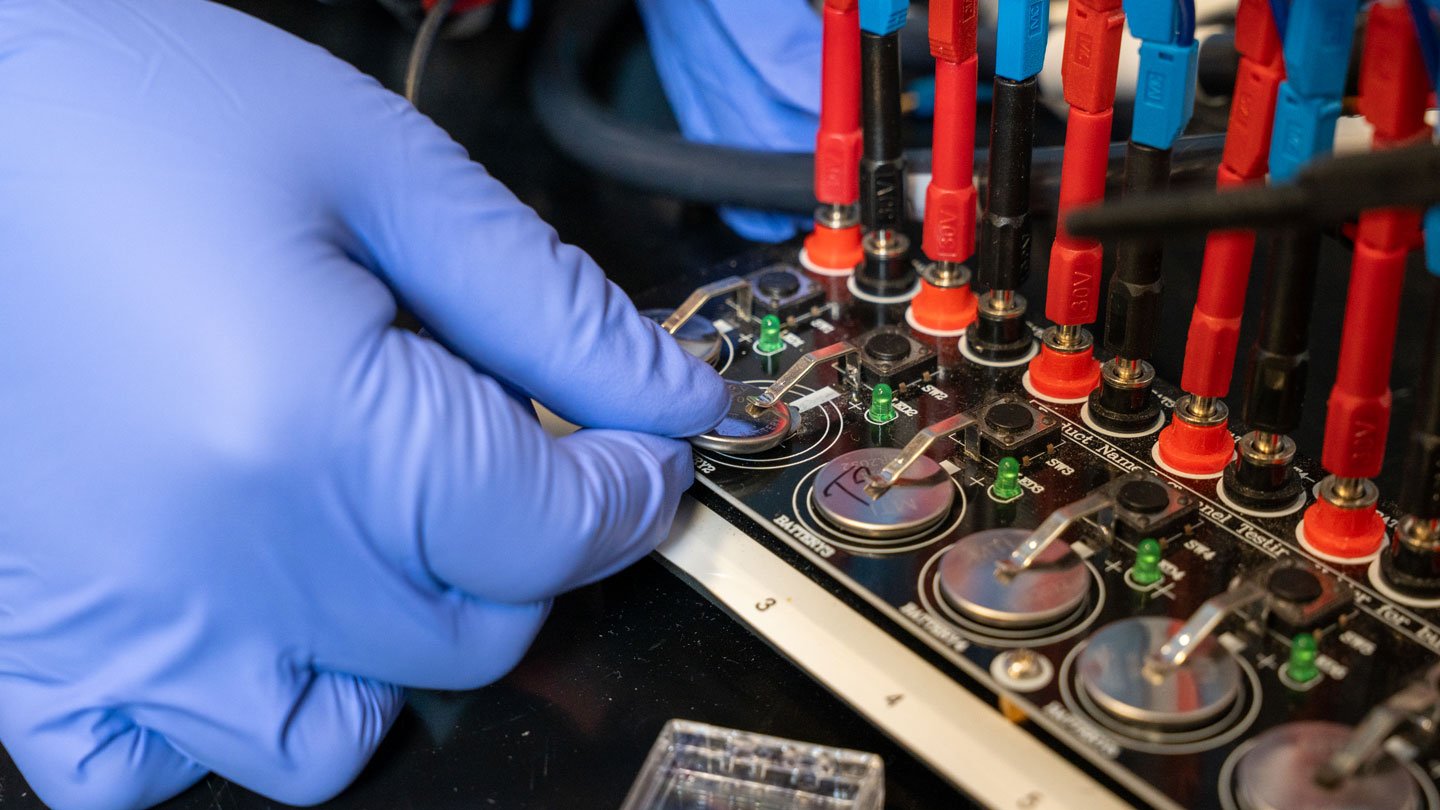Rechargeable lithium-ion batteries don’t last forever. Over time, they hold onto less charge, eventually transforming from power sources to bricks. One reason: hidden, leaky hydrogen, new research suggests.
Unwanted hydrogen protons fill molecular slots in the positive end of the battery leaving less room for charged lithium atoms, or ions, which maintain reactivity and help conduct charge, scientists report September 12 in Science.
The new research identifies a set of undesirable chemical reactions that unfold when the battery’s electrolyte, which is supposed to transport lithium ions, inadvertently releases hydrogen into the positive end, or cathode. This “triggers all kinds of problems” and reduces the capacity and lifespan of the battery, says Gang Wan, a materials physicist and chemist at Stanford University. “Even if you’re not using the battery, it loses energy.”
Past explanations of energy loss in batteries focused on the movement of lithium ions. Some researchers have hypothesized that hydrogen atoms could also play a role, but it has been hard to observe because hydrogen is so small and ubiquitous. So, Wan and his colleagues swapped the hydrogen in the electrolyte of cell-sized batteries for deuterium, a heavier variant of hydrogen. The researchers then tracked the deuterium’s movement with high-powered X-ray imaging and mass spectrometry. Using the results and theoretical calculations, the team showed that hydrogen is the “dominant” player in cathode charge loss.
The research boosts our knowledge of the opaque chemistry unfolding inside batteries, which makes it “really significant,” says Bart Bartlett, a materials and inorganic chemist at the University of Michigan in Ann Arbor who wasn’t involved in the study. It hints at possible pathways for improved battery life, such as adjusting battery chemistry to avoid hydrogen reactions.
Plus, the work highlights an unacknowledged problem in the ongoing push for increasingly high-voltage batteries, as engineers aim to hold more energy in smaller cells. Higher voltage cathodes are more reactive and more likely to pull in hydrogen, so the higher the battery voltage, the more this “protonation” or “hydrogenation” takes place. “It’s a trade-off that I don’t think we fully appreciated we were making, or didn’t understand why,” Bartlett says.
But, he says, the scientists assessed just one type of battery and scenario. More research is needed to understand how broadly the findings apply.
If the team’s observations do prove replicable, they’ll most likely lead to better, longer-lasting batteries that speed innovations like longer-range electric vehicles, says Jacqueline Edge, a battery researcher and engineer at Imperial College London. Simultaneously, advances in battery life would minimize our need to mine the minerals that go into battery cells like cobalt and, of course, lithium, which carries negative environmental and social consequences (SN: 5/7/19). It could be a two-fold sustainability win, she says.
Source link














Leave a Reply